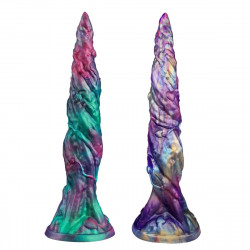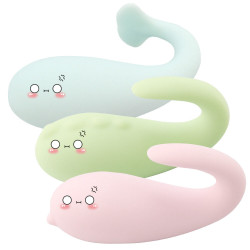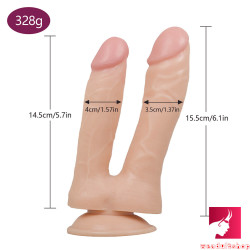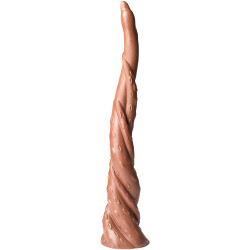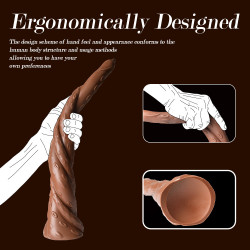Slave
According to the BDSM total power exchange relationship, a slave is a subservient person who cedes their authority to a dominant person, referred to as a master or mistress. In the popular BDSM jargon, this is by far the most loaded and triggering term. It would be prudent to educate yourself about the historical and contemporary tragedy surrounding slavery, from the transatlantic slave trade to human trafficking, before spreading the word.
Both the Dominant and the larger BDSM community started to see a slave as their property. Anything they used to own, like clothing or cars, usually ends up in the hands of their dominant. Its main distinction from slavery, as generally understood, is that the sub has voluntarily given up their freedom. This distinction cannot be emphasized enough.
All of their domineering partner's needs and desires must be satisfied by enslaved people. They cook, clean their homes, take care of their sexual needs, and offer companionship and mental support.
Frequently, enslaved people are utterly obedient to their domineering partners. They must be available for anything the Dominant asks of them and obtain permission before acting. They must put in much effort and finish the daily tasks for their Dominant's approval. If enslaved people stray from their responsibilities, they are frequently punished. They might also be rewarded for their hard work if they finish their daily tasks or behave well for a long time.
Slave-dominant relationships are different, as are all partnerships. For instance, more negotiation is permitted in some relationships than in others. Some enslaved people sign slave contracts. To make clear the conditions of their relationship, these contracts explicitly outline the expectations of both parties. Usually, these agreements have no legal force behind them. However, slaves, masters, or mistresses who violate these agreements without cause are frowned upon by the BDSM community. To make it evident that they were their dominant property, many enslaved people also wore collars that were given to them.
One term for a slave is a "24/7 slave." Being a slave is a whole lifestyle option for more people, as this title highlights. Additionally, it distinguishes enslaved people from other submissives who may have greater power over their lives but are nonetheless obedient for scenes.
Keep in mind the distinction between the term "slave" in BDSM and its more widespread usage. Before engaging in a relationship of complete power exchange, slaves in BDSM provide their entire consent. They vary from those who are enslaved and trafficked because of this.
More About the enslaved person
Anyone should not decide to become enslaved lightly. A Dominant has complete control over an enslaved person's life, including when they eat, sleep, and use the restroom, as well as what they wear, if they wear any clothes at all. Enslaved people must also determine whether they can live without the things they want and agree to any conditions set by their Dominant without question or protest. They must also decide whether to give up what they have worked hard to get, like a career or material belongings. If their master gives them instructions, enslaved people frequently lose ownership of their belongings and are forced to quit their jobs.
Spend some time considering if you want to cede total control of your life to someone else before committing to live as an enslaved person. If not, you might think about just acting like a submissive. Instead of a complete power exchange, this activity entails momentary submission. Not everyone is cut out to be enslaved. The rigors of slave life may be too much for people who are easily irritated or moody. However, doormats are typically not desired by dominants. You might not be the best person to be enslaved just because you're pleasant.
Despite the significant personal sacrifices involved in being a slave, many enslaved people found their lifestyle choice fulfilling, even taking pleasure in reclaiming the terms enslaved person and enslaver from their historical context.
Meeting their Dominant's wants gives them a sense of purpose and makes them happy. Additionally, they value not having to worry about budgeting or other issues because their requirements have been satisfied. For those with a strong, caring nature and self-discipline, being a slave may be an excellent option.
Finding dominants they could fully trust was crucial for enslaved people. A good dominant will take care of their slave and ensure that their needs are never overlooked or their welfare is never jeopardized. They will praise and reward their slaves even though they may chastise them. The duties they assign their slaves help them develop personally by improving their abilities or overcoming their inhibitions. Taking into account their personality and any prior trauma, a competent dominant will also negotiate the best terms for their slave.
Slaves are consenting parties in all BDSM partnerships. They give their permission to become and remain in a slave-master/mistress relationship. They can leave the ties anytime if they don't think it works for them.
The names "slave" and "master" are contentious both inside and beyond the BDSM community due to the history of slavery and ongoing human servitude. Being inclusive requires acknowledging that the meanings of this terminology might be upsetting and exacerbate past suffering.




